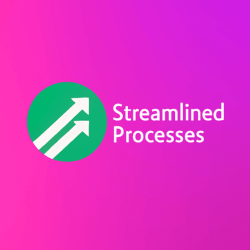For Payment Gateway Solutions, see our main page here.
Understanding Payment Gateway Solutions in Today’s Digital Economy
Digital commerce continues to evolve at a fast pace. As a result, businesses of all sizes need reliable ways to accept payments online. This has made Payment Gateway Solutions a vital part of modern transaction systems. They power everything from e-commerce stores to mobile apps and subscription services.
A payment gateway acts like a bridge between the customer, the merchant, and the payment processor. It securely transfers data, ensuring payments are approved quickly and without errors. Most importantly, it must keep this data safe while providing a smooth experience for users.
Why Businesses Rely on Payment Gateway Solutions
Choosing the right payment system can impact a company’s revenue, customer satisfaction, and global reach. Therefore, Payment Gateway Solutions play an essential role in driving conversions and minimizing abandoned carts. They also help businesses comply with laws like PCI-DSS for data security.
Consider a global brand like Amazon. Its platform handles millions of transactions daily. Behind the scenes, multiple secure gateways validate payments, verify card details, and communicate with banks. Consequently, customers make purchases with confidence, and the company runs more efficiently.
Key Features of Modern Payment Gateways
Today’s Payment Gateway Solutions offer much more than basic transaction services. Here are key features you should expect:
- Real-time transaction processing
- Advanced fraud detection and prevention tools
- Multi-currency and multi-language support
- Mobile payment integrations
- Subscription billing and recurring payment options
- Automatic payment retries for failed transactions
These features help businesses grow while keeping complexity and operational costs low. For example, recurring billing options are crucial for SaaS platforms and fitness services.
How Payment Gateway Solutions Work
Understanding the flow of a payment transaction helps reveal the value of a robust payment system. Here’s a simplified breakdown of how it works:
- The customer enters their payment information during checkout.
- The payment gateway encrypts this data and sends it to the payment processor.
- The processor contacts the issuing bank to approve or decline the transaction.
- The approval status is sent back through the processor and gateway to the merchant and customer.
All this happens in a matter of seconds. The entire process requires top-tier encryption and redundant security protocols to ensure privacy and trust.
Comparing Popular Payment Gateway Providers
There are many providers in the market, each with different strengths. Comparing them helps businesses find the best match.
- Stripe: Known for developer-friendly APIs and flexible billing systems.
- PayPal: Offers global reach and brand recognition, especially for small businesses.
- Square: Ideal for in-person businesses transitioning to e-commerce.
- Authorize.net: Offers strong fraud detection and recurring billing tools for larger companies.
For instance, a small online store might start with PayPal because it’s easy to use. But as the store grows internationally, they might switch to Stripe to take advantage of better customization and payment logic.
Trends Shaping the Future of Payment Gateway Solutions
Technology continues to reshape how people pay for goods and services. As a result, Payment Gateway Solutions are also evolving. Here are a few trends to watch:
- Biometric authentication: Fingerprint and face recognition are replacing passwords.
- AI-driven fraud detection: Machine learning flags suspicious behavior more accurately than manual methods.
- Contactless payments: NFC tap-to-pay is becoming mainstream in both retail and e-commerce.
- Cryptocurrency payments: Some gateways now process Bitcoin and other digital currencies.
These innovations offer both opportunity and complexity. Therefore, it’s wise for businesses to choose gateways that are flexible and future-ready.
Potential Pitfalls to Avoid
Payment systems must be resilient. However, mistakes in choosing or configuring a gateway can be costly. Common issues include:
- Using a provider with poor uptime, leading to lost sales
- Not enabling fraud filters, increasing chargebacks
- Setting up complex checkout flows, frustrating customers
- Failing to comply with data handling regulations
To illustrate, one mid-sized retailer saw a 15% drop in sales after switching to a gateway with slower response times. After reverting to a faster solution, their sales recovered in two weeks.
Optimizing Checkout to Maximize Payment Success
Even with great Payment Gateway Solutions, checkout experience matters. Here’s how you can improve yours:
- Keep the number of clicks under three from cart to payment
- Offer guest checkout to reduce friction
- Display trust badges and SSL certificates
- Use localized currencies and languages for international users
Furthermore, consider A/B testing two different checkout interfaces. Measure which one results in more completed transactions.
FAQ: Payment Gateway Solutions
Do I need a merchant account for a payment gateway?
Some gateways bundle this service—others require you to open one separately. Stripe and Square, for example, include it.
Are payment gateways secure for customers?
Yes, reputable gateways follow PCI-DSS rules and use encryption, tokenization, and fraud controls to protect financial data.
How much do Payment Gateway Solutions typically cost?
Fees vary. Most gateways charge a percentage of each sale, usually 2.9% + $0.30 per transaction. Volume discounts may apply.
Can I use more than one gateway?
Yes. Many businesses use backup gateways or offer multiple options to provide flexibility to their customers.
How long does it take to set up a payment gateway?
It can take a few hours to several days, depending on complexity, integrations, and the provider’s requirements.
The Role of Automation and AI in Content Creation
This article was created with the assistance of AI tools and reviewed by our team at Streamlined Processes LLC to ensure accuracy and relevance. AI tools helped us structure and verify key information faster. However, every insight has been cross-checked and edited by experienced professionals to maintain trust and correctness.
In conclusion, Payment Gateway Solutions are no longer just for tech-savvy businesses. They are essential for nearly any operation that accepts digital payments. With the right system in place, businesses can grow faster, operate smoother, and deliver better customer experiences.
Follow us on Facebook here.

